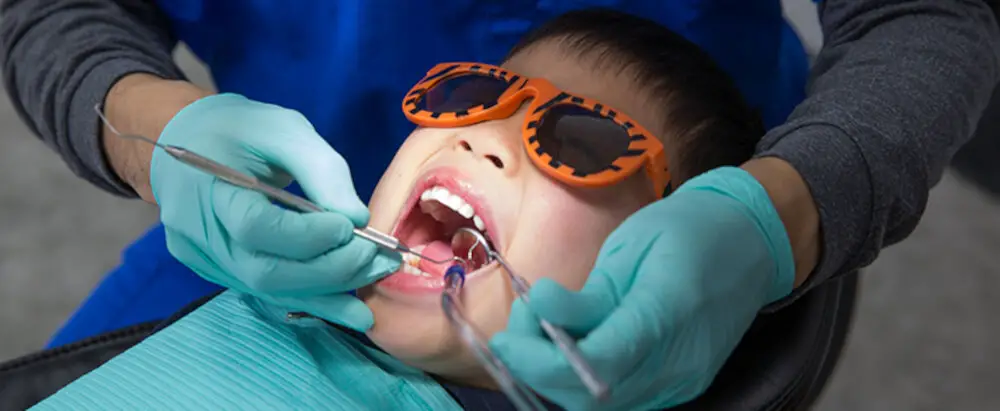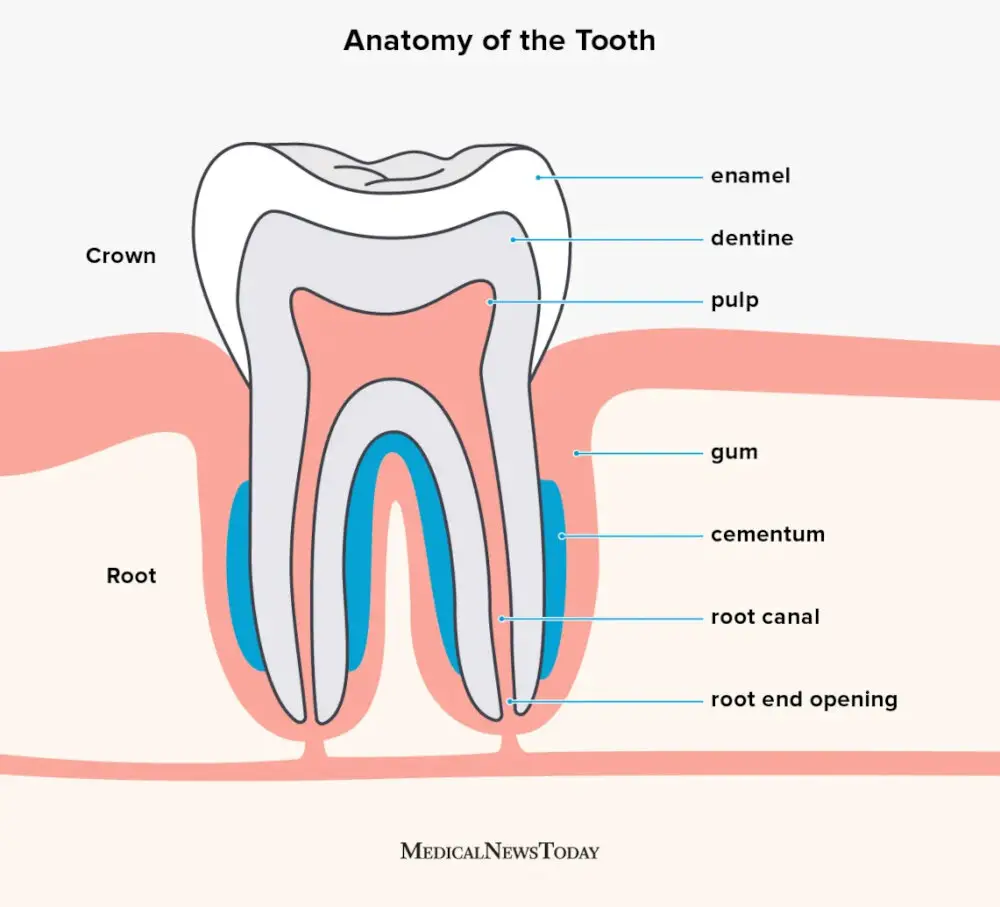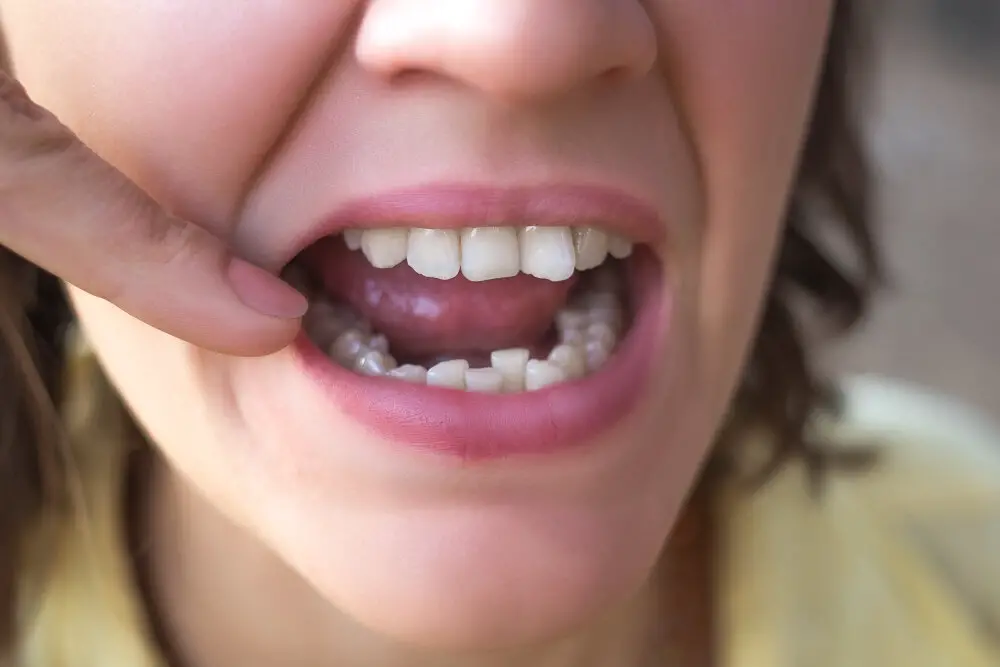Discover the Cost of Bonding Teeth: A Complete Guide to Dental Bonding Expenses

Dental bonding is a cosmetic procedure that involves the application of tooth-colored composite resin to teeth to improve their appearance and function. This popular dental treatment is an excellent option for patients who wish to enhance their smile without undergoing extensive dental procedures such as crowns or veneers. However, many patients are hesitant to pursue dental bonding because they are unsure of the cost, and whether the expense is worth the investment. In this comprehensive guide, we will explore the cost of dental bonding, the various factors that influence the price, and what you can expect to pay for this procedure. The cost of dental bonding varies depending on several factors, including the number of teeth being bonded, the location of the dentist, the dentist’s experience and reputation, and the materials used. The cost of dental bonding can also vary depending on the complexity of the procedure, and whether any additional dental treatments or procedures are necessary. Despite the variation in cost, dental bonding is generally considered an affordable cosmetic dental treatment that can provide excellent results for patients seeking to improve their smile. In this guide, we will provide a detailed breakdown of the cost of dental bonding, along with information on financing options and insurance coverage.
Dental bonding is a cosmetic dental procedure that involves the application of a tooth-colored resin material onto the surface of a tooth to improve its appearance and functionality. The bonding material is carefully sculpted and shaped to match the natural teeth, and then hardened using a special light. Dental bonding is a quick and painless procedure that can be completed in a single dental visit. It can be used to fix a range of dental issues, such as chipped or cracked teeth, gaps between teeth, and discoloration. Dental bonding is an affordable alternative to other cosmetic dental treatments, such as veneers or crowns, and can provide patients with a beautiful, natural-looking smile.
Dental bonding is a popular cosmetic dental procedure that involves applying a tooth-colored resin material to the surface of the teeth to improve their appearance. People choose dental bonding for various reasons, including repairing chipped or cracked teeth, filling gaps between teeth, and improving the shape and size of the teeth. Unlike other dental procedures, bonding is a relatively quick and painless process that can be completed in a single visit to the dentist. Additionally, dental bonding is a cost-effective alternative to other cosmetic dental procedures such as veneers and crowns, making it an accessible option for people who want to improve their smile without breaking the bank. Overall, dental bonding is a versatile and affordable cosmetic dental solution that can help people achieve a brighter, more confident smile.
Understanding dental bonding expenses is crucial for anyone looking to improve their smile. Dental bonding is a cosmetic dental procedure that involves the application of a tooth-colored resin material to the teeth to improve their appearance. The cost of dental bonding can vary depending on several factors, including the extent of the treatment, the location of the dental office, and the experience of the dentist. By understanding the cost of bonding teeth, patients can make informed decisions about their dental care and budget accordingly. It is important to note that while dental bonding is a more affordable option compared to other cosmetic dental procedures, it is still an investment in your oral health and appearance. Therefore, it is essential to choose a reputable dentist who can provide high-quality dental bonding services that meet your needs and budget.
Factors Affecting Dental Bonding Costs

Dental bonding is a cosmetic dental procedure that involves the application of a tooth-colored resin material to the teeth. The resin material is bonded to the tooth using a special light, resulting in a natural-looking smile. The cost of dental bonding can vary depending on a range of factors. One of the most significant factors that affect dental bonding costs is the location of the practice. Dental practices in large cities tend to charge more for dental bonding compared to those in smaller towns. This is because the cost of living and running a practice is generally higher in large cities. Additionally, the demand for cosmetic dental treatments is often higher in big cities, leading to higher prices. Another factor that affects dental bonding costs is the extent of the treatment required. If only a small area of the tooth requires bonding, the cost will be less than if several teeth require treatment. The complexity of the bonding procedure also plays a role in determining the cost. If the bonding requires a high level of skill and involves multiple layers of resin material, the cost will be higher. Additionally, the materials used in the bonding process can also affect the overall cost. High-quality materials tend to be more expensive, resulting in a higher cost for the patient. Overall, the cost of dental bonding can vary significantly depending on a range of factors, and patients should consult with their dentist to determine the most suitable treatment plan and associated costs.
Location plays a significant role in determining the cost of dental bonding. The prices for dental bonding are different depending on the area where the dental office is located. In urban areas or big cities, the cost of dental bonding may be higher than in rural areas or small towns. This is because the cost of living, rent, and other expenses are higher in urban areas. Dental bonding costs may also vary within the same city, depending on the neighborhood. Therefore, it is essential to research and compare the prices of dental bonding in different locations to find the best deal that suits your budget and needs.
A dentist’s experience and expertise are crucial when it comes to dental bonding. They not only need to have a thorough understanding of the procedure, but they also need to have a keen eye for aesthetics. A skilled dentist will be able to match the color of the bonding material to the patient’s natural teeth and shape it to blend seamlessly. Additionally, they will have the knowledge and experience to ensure that the bonding material adheres properly and lasts as long as possible. A quality dentist will also take the time to explain the procedure and answer any questions the patient may have, making sure they feel comfortable and informed throughout the entire process. Overall, a dentist’s experience and expertise are invaluable when it comes to dental bonding, and patients should prioritize finding a qualified professional for their procedure.
When it comes to dental bonding, the number of teeth being bonded can greatly influence the overall cost of the procedure. Bonding can be used to fix a variety of dental issues, including chipped or cracked teeth, decayed teeth, gaps between teeth, and discolored teeth. If only one tooth needs to be bonded, the cost will typically be lower than if multiple teeth need to be bonded. However, it’s important to keep in mind that the cost per tooth may decrease when bonding several teeth at once. Ultimately, the cost of bonding teeth will depend on the specific needs of each patient, and it’s important to consult with a dental professional to determine the best course of action and associated costs.
Dental issues are a serious matter and their severity can range from mild to severe. Mild dental issues can include tooth sensitivity, minor cavities, and mild discoloration. However, more severe dental issues can pose a significant threat to one’s oral health and overall wellbeing. Some of the more severe dental issues that individuals may face include severe tooth decay, gum disease, and tooth loss. These issues can not only cause discomfort and pain but can also lead to further health complications if left untreated. Therefore, it is important to address dental issues promptly and seek professional help to ensure that they do not progress into more severe problems.
Materials used for bonding teeth can vary depending on the specific needs of the patient. Composite resin is the most commonly used material, as it can be color-matched to the natural shade of the teeth and can be sculpted to the desired shape. Porcelain is another option, which is more durable and stain-resistant, but also more expensive. Glass ionomer is a material that releases fluoride, making it a good choice for patients with a high risk of tooth decay. In some cases, a dentist may use a combination of materials to achieve the desired results. It is important to discuss the options with your dentist to determine which material is best for your individual needs and budget.
Average Cost of Dental Bonding

Dental bonding is a cosmetic dental procedure that can repair minor tooth damage, improve the appearance of teeth, and fix dental imperfections such as gaps, chips, and stains. As a non-invasive and relatively affordable procedure, dental bonding is gaining popularity among patients who seek a quick fix for their dental issues. The average cost of dental bonding can vary depending on several factors such as the location of the dental practice, the experience of the dentist, and the extent of the dental work needed. On average, dental bonding can cost anywhere between $300 to $600 per tooth, but some patients may pay as much as $1000 or more if multiple teeth require bonding. However, compared to other cosmetic dental procedures such as veneers or dental implants, dental bonding is a more cost-effective option. Several factors can influence the cost of dental bonding, including the complexity of the bonding procedure, the type of material used, and the expertise of the dentist. For example, if a patient has a small chip or gap in their tooth that requires minimal bonding, the cost may be lower than if they need extensive bonding to correct a larger dental issue. Additionally, some dental practices may use higher quality materials that can affect the overall cost of the procedure. Finally, the experience and expertise of the dentist can also impact the cost, as more experienced dentists may charge higher fees for their services. Ultimately, patients should consult with their dentist to determine the exact cost of their dental bonding procedure and explore any payment options or financing plans that may be available to them.
National average cost refers to the average price that people can expect to pay for a particular service or product across a particular geographic region. In the context of dental bonding, the national average cost can vary depending on a number of factors, including the complexity of the procedure, the experience and skill of the dentist, and the location of the dental practice. Generally speaking, the national average cost of bonding teeth can range from a few hundred to several thousand dollars. While the cost of dental bonding may seem high, it is important to remember that it is a cosmetic procedure that can have a significant impact on the appearance of one’s smile. As such, many people find that the benefits of dental bonding are well worth the cost.
When it comes to dental procedures, bonding teeth is considered to be a relatively quick and painless option. Compared to other procedures like veneers or crowns, bonding requires less removal of the natural tooth structure and can often be completed in just one visit to the dentist. Additionally, bonding is a more affordable option than these other procedures, making it a popular choice for those looking to improve the appearance of their teeth without breaking the bank. However, it is important to note that bonding may not last as long as veneers or crowns and may require touch-up treatments in the future. As with any dental procedure, it is best to consult with your dentist to determine which option is best for your specific needs and budget.
Dental bonding is a cosmetic procedure that involves applying a tooth-colored resin to the surface of teeth to improve their appearance. The cost of dental bonding can vary depending on the location of the dental clinic, the experience of the dentist, the number of teeth being bonded, and the complexity of the procedure. On average, the cost of dental bonding can range from $100 to $400 per tooth. This cost breakdown includes the cost of the materials used, the dentist’s fee, and any additional fees such as anesthesia or X-rays. While dental bonding is a less expensive alternative to other cosmetic procedures such as veneers or crowns, it is important to consider all the factors that affect the cost before making a decision.
Ways to Save on Dental Bonding Expenses

Dental bonding is a cosmetic dental procedure that involves applying a tooth-colored resin material to repair or reshape a tooth. While bonding is a relatively affordable option compared to other cosmetic dental procedures, it can still be costly for some individuals. Fortunately, there are ways to save on dental bonding expenses. One way is to consider dental schools or clinics that offer discounted rates for dental procedures. These institutions are often supervised by experienced dentists, ensuring that the quality of care is not compromised. Another way to save on dental bonding expenses is to opt for dental insurance plans that cover cosmetic dental procedures. While not all insurance companies offer this coverage, it is worth checking with your provider to see if they have any options available. Another way to save on dental bonding expenses is to ask your dentist about financing options. Many dental offices offer financing plans that allow patients to pay for their procedures over time rather than in one lump sum. This can be especially helpful for individuals who require multiple bonding procedures or who do not have the funds to pay for the procedure upfront. Additionally, some dentists may offer discounts for cash payments or for referrals to new patients. While it is important to prioritize quality when it comes to dental procedures, there are ways to save on dental bonding expenses without sacrificing the quality of care.
Dental insurance coverage for bonding teeth can vary depending on the specific policy. Some plans may cover a portion of the cost, while others may not cover it at all. It is important to review your policy’s coverage and speak with your dental provider to understand the potential out-of-pocket expenses. Additionally, many dental offices offer financing options to help make the cost of bonding teeth more manageable. Ultimately, investing in dental bonding can improve both the appearance and function of your teeth, making it a worthwhile expense for many individuals.
When it comes to financing dental bonding expenses, there are several options available to patients. Firstly, many dental offices offer payment plans or financing options that allow patients to pay for their treatment over time. Additionally, some patients may be able to utilize healthcare credit cards that offer low or no interest financing for medical expenses. Another option is to utilize flexible spending accounts or health savings accounts, which allow patients to set aside pre-tax dollars for medical expenses. Finally, patients may also consider personal loans or lines of credit from their financial institutions. It’s important to explore all of these financing options and choose the one that best fits your individual financial situation.
Negotiating with a dentist can be a daunting task, but it is essential to ensure you get the best possible deal. When it comes to bonding teeth, it is important to be upfront about your budget and discuss the options available to you. A good dentist will work with you to find a solution that fits your needs and your wallet. Don’t be afraid to ask questions about the procedure, the materials used, and the overall cost. Be clear about what you can afford, and see if there are any payment plans or financing options that can help make the procedure more manageable. Remember, it is your right as a patient to understand the cost of any dental procedure, and a good dentist will be happy to work with you to find a solution that fits your needs.
When it comes to dental bonding expenses, some people may seek alternative treatments to save money. However, it is important to note that alternative treatments may not provide the same long-lasting and effective results as dental bonding. Some people may consider at-home teeth whitening kits or using DIY methods to fix minor dental issues, but these methods may cause further damage and end up costing more in the long run. It is always best to consult with a professional dentist and discuss your options before deciding on an alternative treatment. Ultimately, investing in dental bonding may save you money and provide a more durable and aesthetically pleasing solution for your dental needs.
In conclusion, dental bonding is a great option for individuals who want to improve the appearance of their teeth without going through extensive dental procedures. It is a quick and painless process that can fix a variety of dental issues such as chips, cracks, and gaps. However, the cost of dental bonding can vary depending on several factors such as the number of teeth being bonded, the extent of the damage, and the location of the dental office. It is important to consult with a dentist to determine if dental bonding is the right option for you and to receive a personalized quote for the procedure. Overall, dental bonding is a cost-effective way to enhance the beauty of your smile and boost your confidence.
Researching dental bonding expenses is crucial for anyone considering this cosmetic dentistry procedure. Dental bonding involves applying a tooth-colored resin material to the tooth’s surface to improve its appearance or function. The cost of dental bonding can vary depending on several factors, including the extent of the work needed, the dentist’s experience, and the location of the practice. By researching dental bonding expenses, patients can gain a better understanding of the procedure’s cost and budget accordingly. It can also help patients make informed decisions about their dental care and ensure they are not overcharged for the treatment. Ultimately, conducting thorough research can help patients achieve their desired smile without breaking the bank.
If you are considering dental bonding, it is important to seek professional consultation for an accurate cost assessment. While it may be tempting to search online for estimated costs or rely on anecdotal information from friends or family, every case is unique and requires an individual assessment from a qualified dental professional. Factors such as the extent of the bonding needed, the materials used, and the location of the dental practice can all impact the cost. By seeking professional consultation, you can ensure that you have a clear and accurate understanding of the cost of bonding teeth and can make an informed decision about your dental care.
Conclusion

In conclusion, dental bonding can be a great option for those looking to enhance the appearance of their teeth and improve their smile. While the cost of bonding teeth may vary depending on a number of factors such as location, the extent of the bonding required and the dentist you choose, it is generally an affordable and effective cosmetic dentistry option. It is important to consult with a qualified and experienced dentist to determine if dental bonding is the right choice for you, and to get an accurate estimate of the cost involved. With the proper care and maintenance, dental bonding can last for many years and provide a natural, beautiful smile that you can be proud of.





